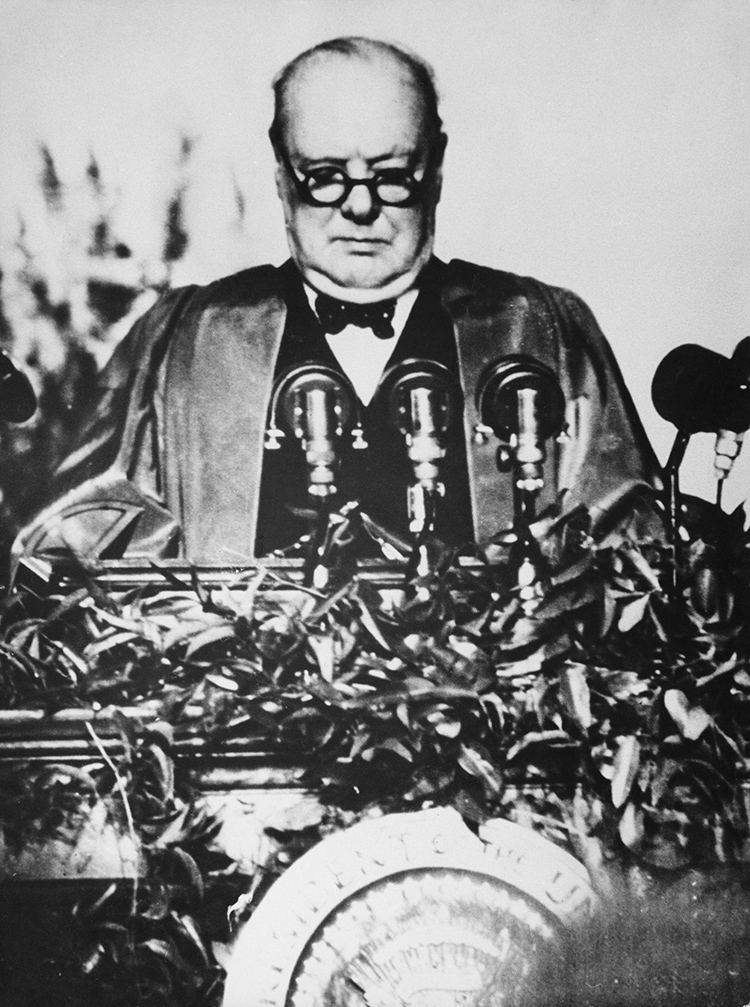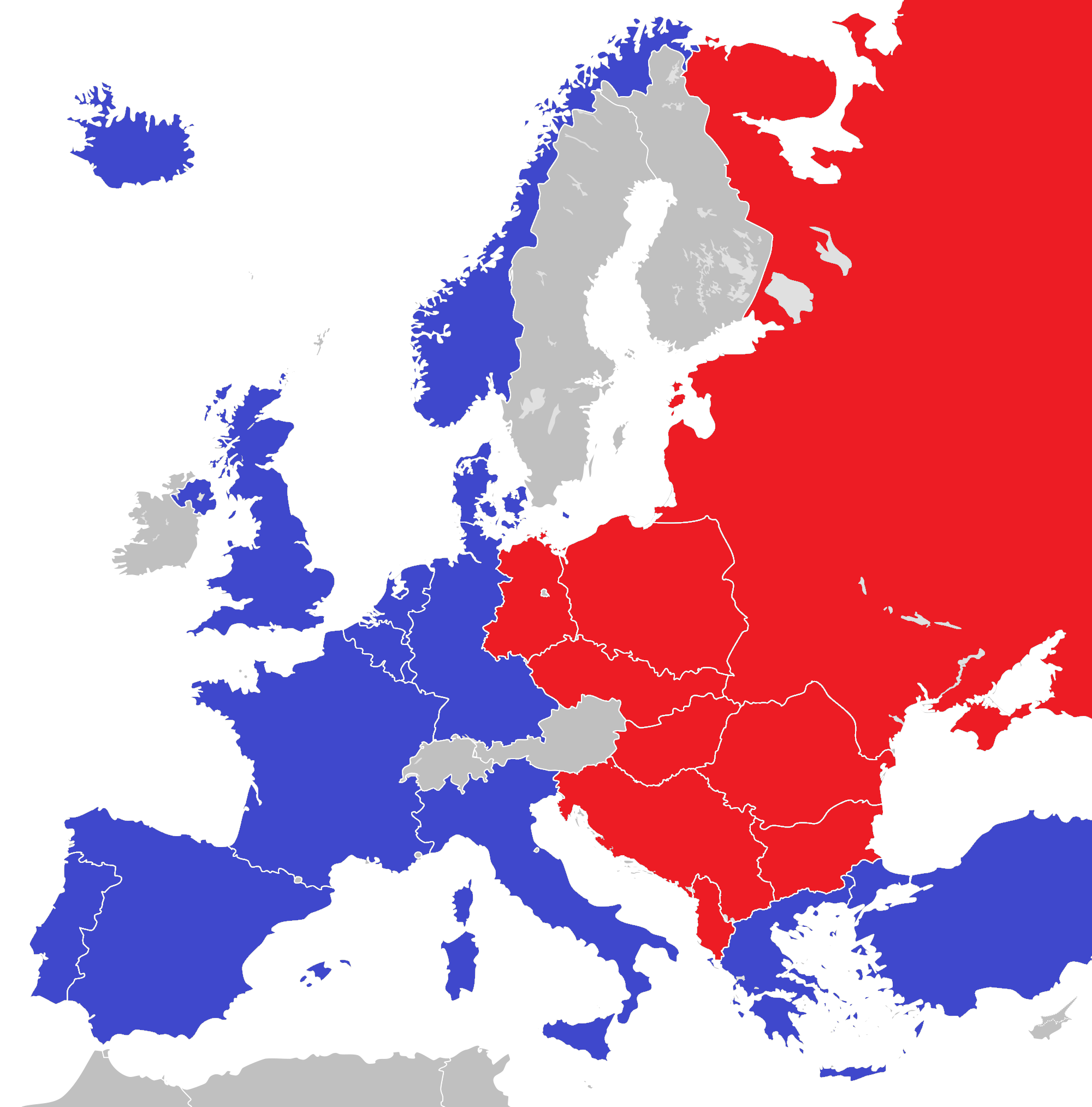Churchill and the Cold War: Why did Churchill make his famous ‘Iron Curtain’ speech in 1946?

British statesman Winston Churchill (1874 - 1965) giving a speech at Westminster College, Fulton, Missouri, USA, 5th March 1946. Known as his 'Sinews of Peace' address, the speech is best known for Churchill's use of the term 'Iron Curtain' in the context of Soviet-dominated Eastern Europe. (Photo by Popperfoto/Getty Images)
During the Second World War Britain, the USA and the Soviet Union had fought as a Grand Alliance against the Axis powers (Germany, Italy and Japan). By September 1945 all of the Axis powers were defeated and the war was over. Within a short time, the differences and tensions between the former allies became increasingly significant. These tensions would eventually develop into the Cold War.
Historians are still debating exactly why (and exactly when) the Cold War began. But most historians would agree that a key event in the emerging Cold War was Winston Churchill’s ‘Iron curtain’ speech delivered on 5 March 1946 in Fulton, Missouri:
From Stettin in the Baltic to Trieste in the Adriatic, an iron curtain has descended across the Continent. Behind that line lie all the capitals of the ancient states of Central and Eastern Europe. Warsaw, Berlin, Prague, Vienna, Budapest, Belgrade, Bucharest and Sofia, all these famous cities and the populations around them lie in the Soviet sphere and are all subject in one form or another, not only to Soviet influence but to a very high and in many cases increasing measure of control from Moscow.
[there is a fuller version of this speech in Source 7 and Source 8 in this investigation.]
This speech was hugely controversial. Many in the USA and the western world welcomed it (although there were criticisms as well). Contrastingly it was condemned in the Soviet Union and the Soviet leader Josef Stalin actually wrote a direct response to it.
Churchill must have known the speech would be controversial, so why did he write it? The sources in this investigation will help you to consider potential reasons, such as:
- Churchill was alarmed by the actions of the Soviet Union and wanted the USA to take action against Stalin.
- Churchill was a warmonger – he relished international conflict.
- Churchill hated the Soviet Union and wanted to cause problems for it.
- Churchill was worried that the USA would withdraw from international affairs as it had done in the 1930s and he thought this would be bad for international relations.
- Churchill was no longer Prime Minister and so was less powerful. He was keen to build up his reputation as an international statesman and to attract publicity for his views.
Your challenge
We have a box of sources from the Churchill Archive for you to investigate.
- Your challenge is to study the sources and use them to interpret why Churchill made the Iron Curtain speech in 1946.
- Your teacher will be able to help you with a recording framework and suggestions on how to present your work.
➜ Background information
➜ The sources
➜ Notes for teachers

Division of Europe by the Iron Curtain. (Wikimedia Commons)
